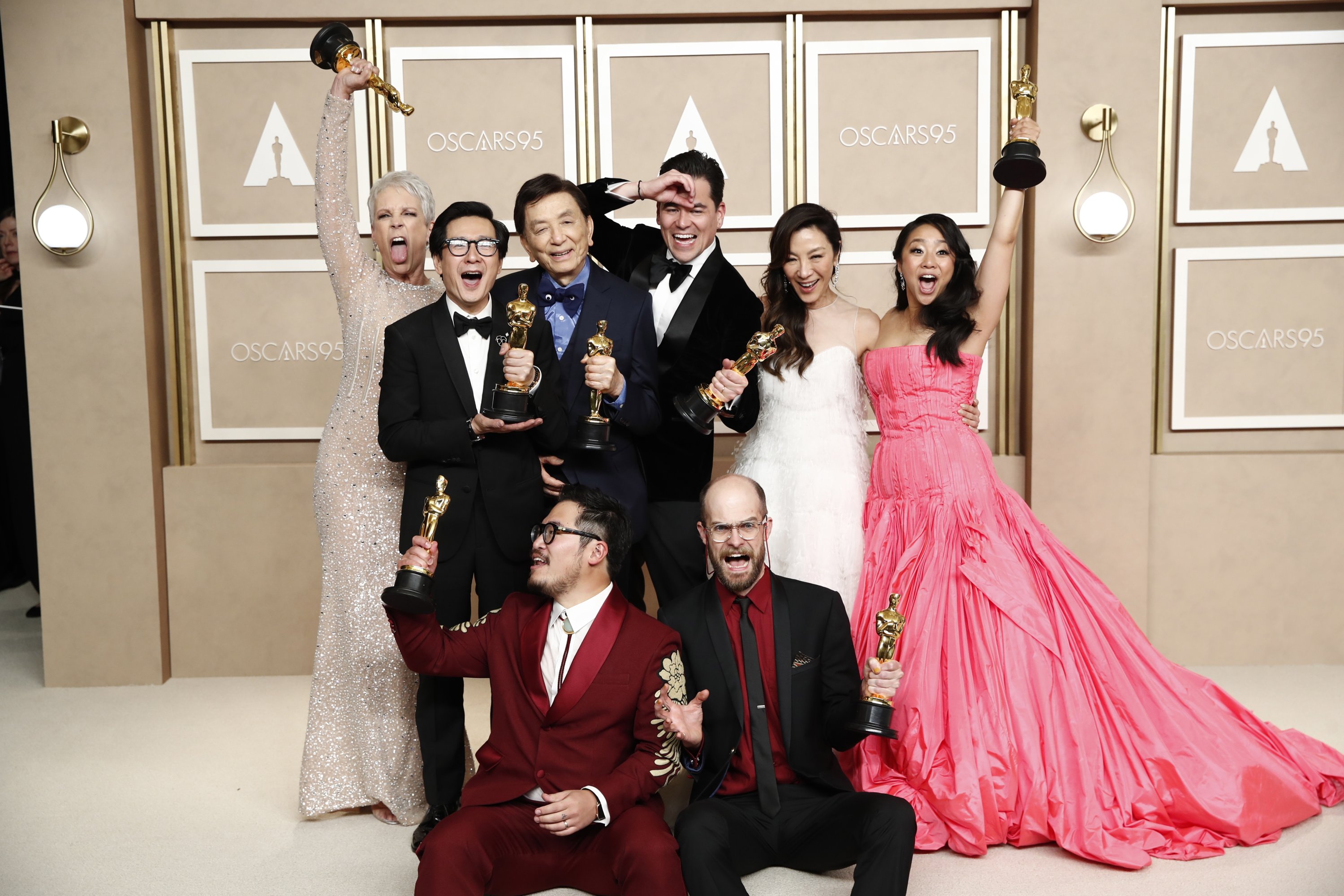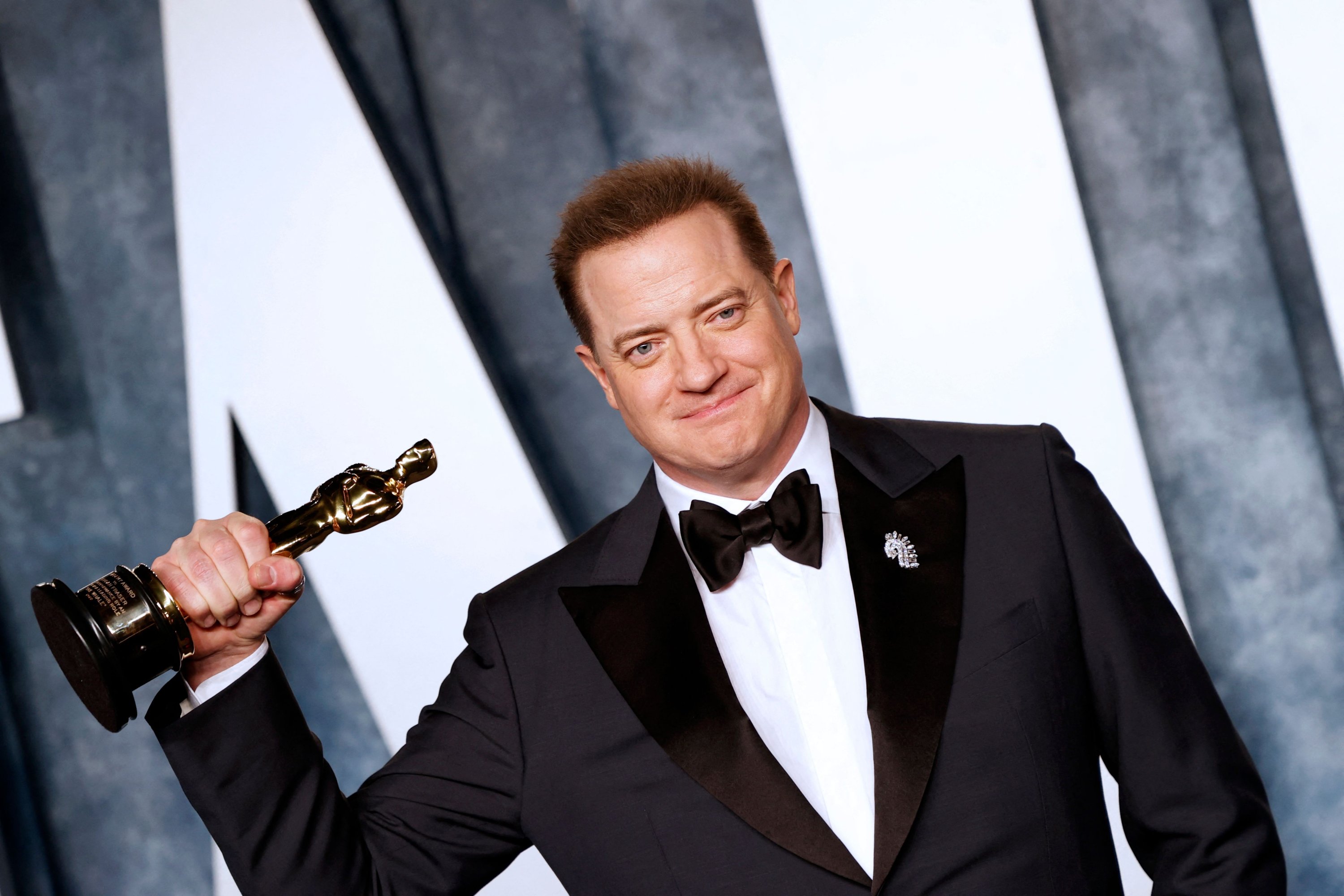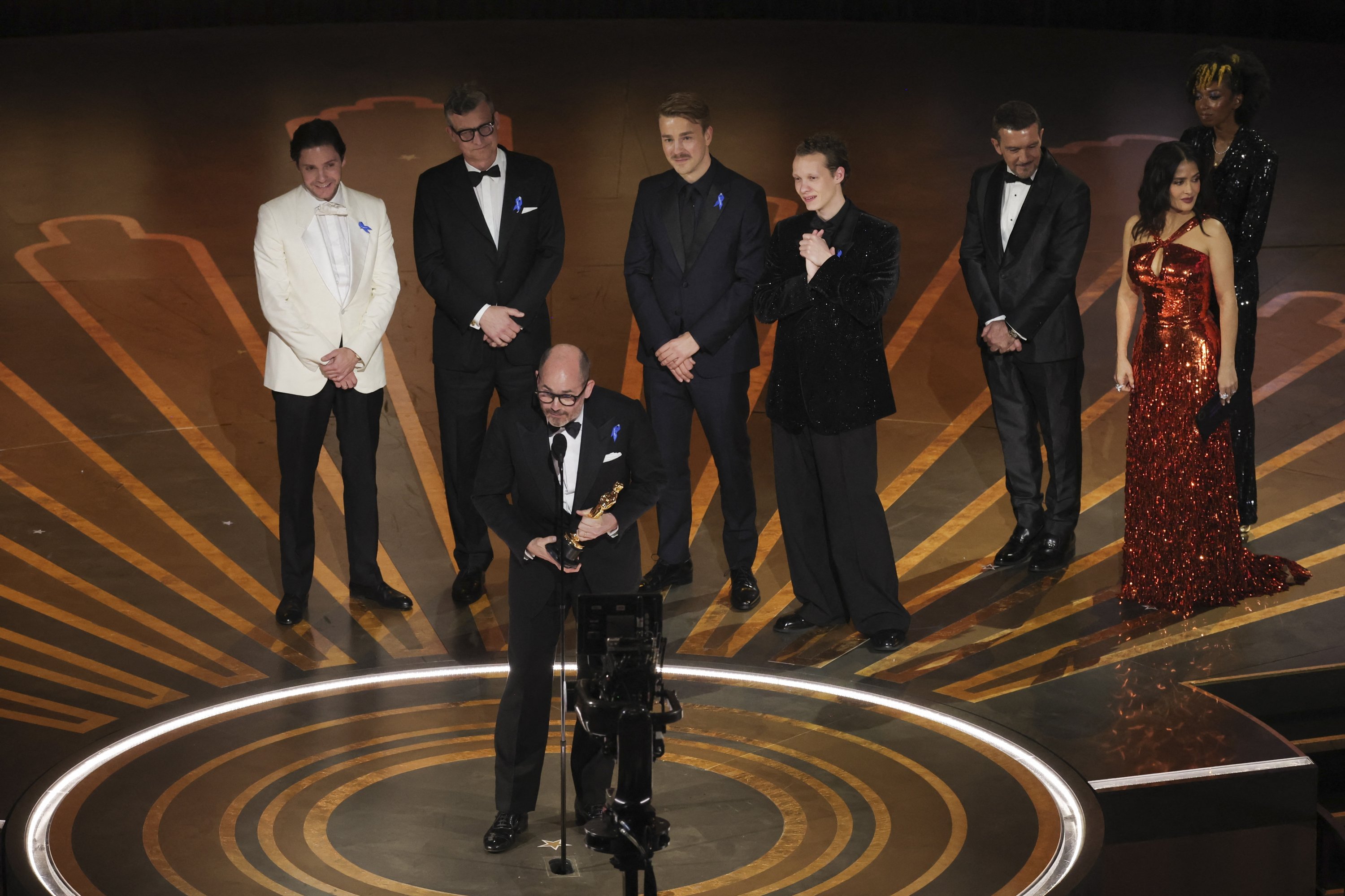© Turkuvaz Haberleşme ve Yayıncılık 2026
The cinematography world’s most significant event took place on Sunday night, welcoming Hollywood stars not on a red carpet this time but a novel champagne-colored carpet.
The winners did not come as a big surprise as they were awarded in various prestigious events before the Oscars 2023.
The metaphysical multiverse comedy “Everything Everywhere All at Once” wrapped its hot dog fingers around Hollywood’s top prize Sunday, winning best picture at the 95th Academy Awards and awards for Michelle Yeoh, Ke Huy Quan and Jamie Lee Curtis.
Though worlds away from Oscar bait, Daniel Kwan and Daniel Scheinert’s anarchic ballet of everything bagels, googly-eyed rocks and one messy tax audit emerged as an improbable Academy Awards heavyweight. The indie hit, A24’s second best picture winner following “Moonlight,” won seven Oscars.
Yeoh became the first Asian woman to be the best actress, taking the award for her lauded performance in “Everything Everywhere All at Once.” The 60-year-old Malaysian-born Yeoh won her first Oscar for a performance that relied as much on her comic and dramatic chops as it did her kung fu skills. In addition, she’s the first best actress to win for a non-white actress in 20 years.

Ke Huy Quan’s win, among the most expected of the night, was nevertheless one of the ceremony’s most moving moments. The audience – including his “Temple of Doom” director, Steven Spielberg – gave Quan a standing ovation as he fought back the tears.
“Mom, I just won an Oscar!” said Quan, 51, whose family fled Vietnam in the war when he was a child.
“They say stories like this only happen in the movies. I can’t believe it’s happening,” said Quan. “This is the American dream.”
Minutes later, Quan’s castmate Jamie Lee Curtis won for best supporting actress. In one of the most competitive categories this year, her win denied a victory for comic-book fans. Angela Bassett (“Black Panther: Wakanda Forever”) would have been the first performer to win an Oscar for a Marvel movie.
Brendan Fraser won the best actor Oscar for “The Whale,” a transformative role in which he revived a once so bright career.
“I started in this business 30 years ago, and things didn’t come easily to me,” said an emotional Fraser, breathing heavily on stage Sunday night. “I just want to say thank you for this acknowledgment.”
Culminating the former action star’s return to center stage for his physical transformation as a 600-pound (270-kilogram) reclusive professor in “The Whale,” the best-actor race had been one of the closest contests of the night. Still, Fraser, in the end, edged Austin Butler.
In the movie, Fraser as Charlie is a reclusive, morbidly obese English literature teacher unable and unwilling to stop eating himself to death. As his health woes mount and his life expectancy is just a week, Charlie struggles to reacquaint himself with his estranged daughter. We meet him on Monday, and the film goes from daily to Friday.

“All Quiet on the Western Front,” starring Felix Kammerer and directed and co-written by Edward Berger, earned nine nominations, including best picture.
It also won for cinematography, production design and original score. “I think it might feel incredible, but I don’t quite know yet because I haven’t processed it yet,” Berger said backstage. “I’m a little bit on autopilot.” Berger was joined onstage by Kammerer and others involved in the film.
“This was your first movie, and you carried us on your shoulders as if it was nothing,” he told the 27-year-old Austrian actor. “Without you, none of us would be here.”
The Netflix film is based on the classic 1929 novel of the same name by Erich Maria Remarque. Set during World War I, it follows the life of a young German soldier who enlists in the army with his friends. But the realities of war shatter his hopes of becoming a hero, and he focuses on his survival. “We tried to make a film about our past, our responsibility in Germany, and our history,” Berger said. “Our urge was to talk about the guilt and shame we’ve brought and the terror the two wars have caused. Hopefully, at some point, we will stop making the same mistakes in the future.”
The German-language film doesn’t hew exactly to Remarque’s novel. Instead, it deviates into political issues against the backdrop of the war. It premiered last year when Russia invaded Ukraine in Europe’s most extensive military conflict since World War II, lending an unexpected relevancy to the movie. “It’s terrible,” cinematography winner James Friend said of the war in Ukraine. “It’s a lesson we can just learn from.”
Guillermo del Toro’s “Pinocchio” has had an Oscar wish come true. The director’s stop-motion musical take on the puppet who longs to be a real boy won Netflix its first animated feature trophy on Sunday.
The category has primarily gone to either a Walt Disney or Pixar-produced film – except “Spider-Man: Into the Spider-Verse.”
“Animation is ready to be taken to the next step. We are all ready for it. So please help us keep the animation in the conversation,” del Toro said. “Pinocchio” was considered the contender to beat. It swept several awards, including the Golden Globe and the top honor at the animation industry’s Annie Awards.
The voice cast includes Ewan McGregor, Christoph Waltz, fellow Oscar nominee Cate Blanchett and Tilda Swinton. It earned rave reviews for a stunningly beautiful production that looks darkly at issues of love and mortality between the titular puppet and surrogate father, Gepetto. A polar opposite of Disney’s 1940 version, this “Pinocchio” references Catholicism, fascism and the horror of war.

The movie was not about the titular character learning to be the perfect boy, del Toro said.
“I think it’s a lesson that’s urgent in the world,” he told reporters in the press room after. “We are saying disobedience is necessary and a virtue.”
The Mexican-born del Toro, who won the Oscar for best director in 2018 for “Shape of Water,” has said animation is pure cinema. However, in recent years, animators have been hitting back against the stigma that animated movies are just a kids’ genre.
For del Toro, animators should be treated as artists – not technicians. He pointed out that his “Pinocchio” lists them in the credits even before the main voice actors.
M.M. Keeravani has brought the spotlight back to India after a historic Oscar musical win. Keeravani won the best original song for his joyously energetic anthem, “Naatu Naatu,” from the film “RRR.” Keeravani and the lyrics by Chandrabose wrote the music.
“It’s just the beginning of everything,” Keeravani said backstage. “For the world, particularly the Western world, folks are more on Indian and Asian music. So it’s just long due. I feel thrilled to open doors and the world to embrace my culture.”
“Naatu Naatu” is the first song from an Indian film to earn a nomination and win in the best original song category. However, Indian artist A.R. Rahman won an Oscar in the category for “Jai Ho” from “Slumdog Millionaire” – a British production – in 2009.
“Navalny,” a look at a Russian opposition leader following an attempt on his life, has won the Oscar for best documentary feature.
Director Daniel Roher’s portrait of Kremlin critic Alexei Navalny has shadowy operatives, truth-seeking journalists, conspiracy theories and Soviet-era poisons. It is a film with apparent political poignance following the Russian invasion of Ukraine.
